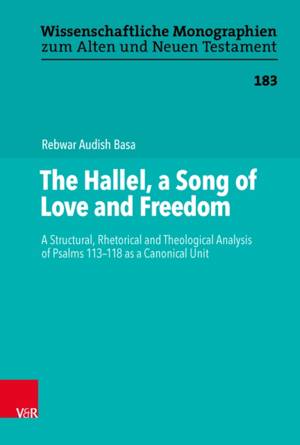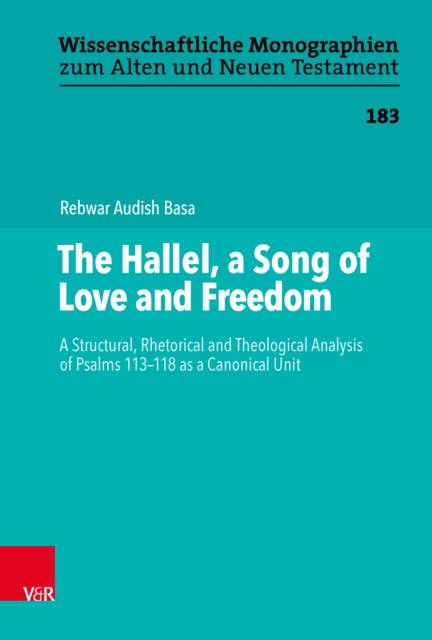
- Afhalen na 1 uur in een winkel met voorraad
- Gratis thuislevering in België vanaf € 30
- Ruim aanbod met 7 miljoen producten
- Afhalen na 1 uur in een winkel met voorraad
- Gratis thuislevering in België vanaf € 30
- Ruim aanbod met 7 miljoen producten
Zoeken
The Hallel, a Song of Love and Freedom
A Structural, Rhetorical and Theological Analysis of Psalms 113-118 as a Canonical Unit
Rebwar Audish Basa
€ 118,45
+ 236 punten
Uitvoering
Omschrijving
In his book, Rebwar Audish Basa follows the canonical exegesis and focuses on a group of Psalms (113-118) which is traditionally known as a unit called "the Hallel" and is used on the major Jewish liturgical feasts. The author examines the hypothesis that Pss 113-118 form a single canonical unit with Ps 118 not only belonging to it but also being the climax of all the psalms of this group. A thorough investigation evaluates the unity of the Hallel and its function and message. The research concludes with the affirmation that the psalms of the Hallel are not put together arbitrarily but with a very precise intention, deep significance and main theological message. Actually, beside the uniqueness of each psalm, Basa affirms the unity of this group and the flow and the development of its themes and ideas. In the last chapter and in the conclusion, some important points regarding the unity of the Hallel are presented together with some of its significant characteristics.
Specificaties
Betrokkenen
- Auteur(s):
- Uitgeverij:
Inhoud
- Aantal bladzijden:
- 272
- Taal:
- Engels
- Reeks:
- Reeksnummer:
- nr. 183
Eigenschappen
- Productcode (EAN):
- 9783525502013
- Verschijningsdatum:
- 10/03/2025
- Uitvoering:
- Hardcover
- Formaat:
- Genaaid
- Afmetingen:
- 155 mm x 231 mm
- Gewicht:
- 707981 g

Alleen bij Standaard Boekhandel
+ 236 punten op je klantenkaart van Standaard Boekhandel
Beoordelingen
We publiceren alleen reviews die voldoen aan de voorwaarden voor reviews. Bekijk onze voorwaarden voor reviews.







